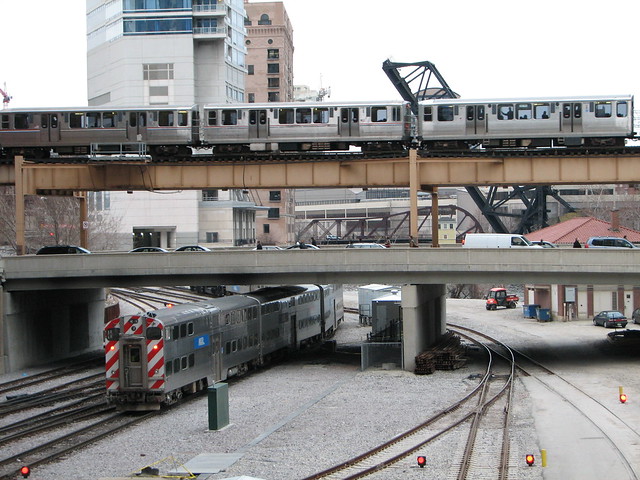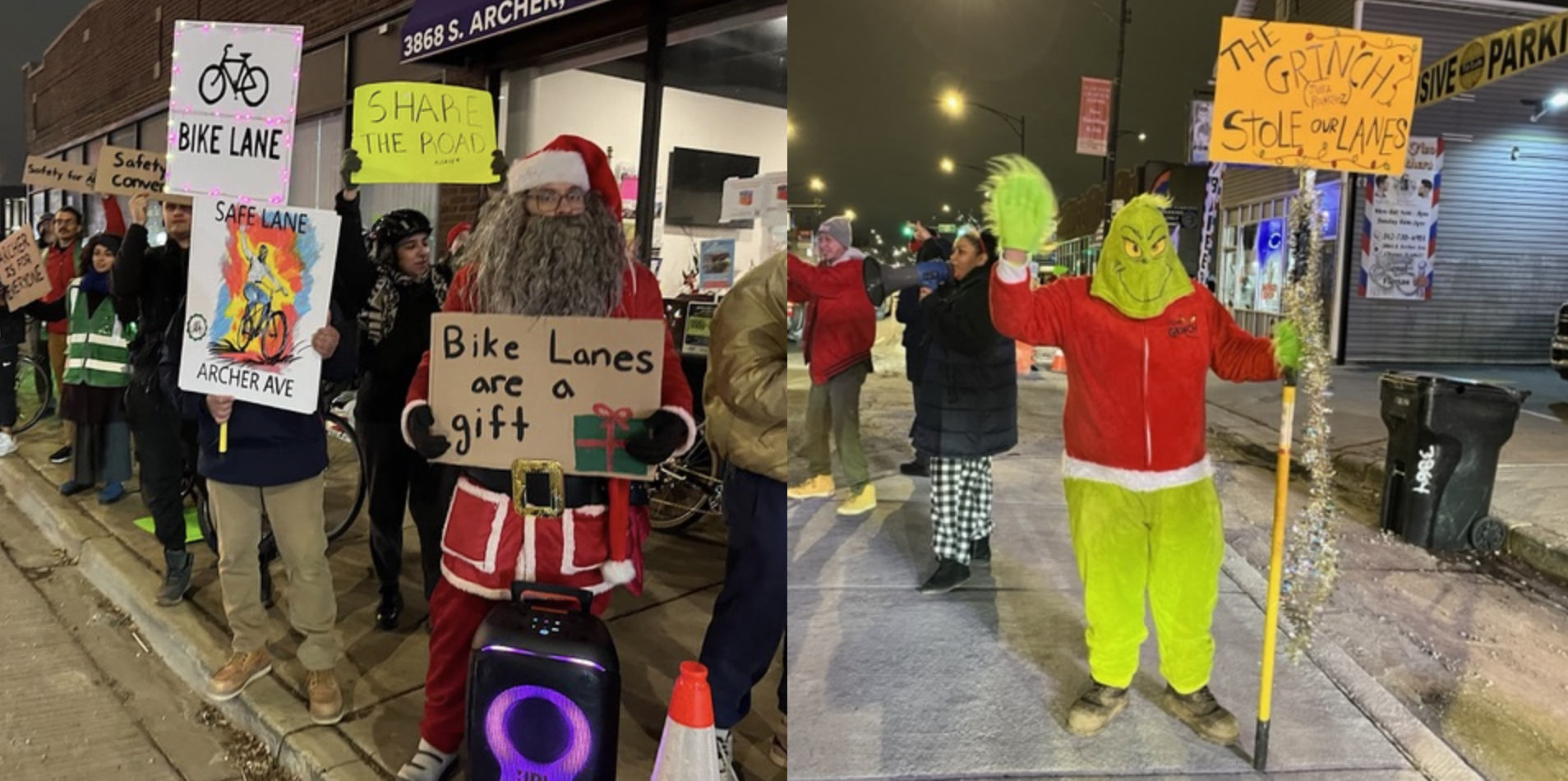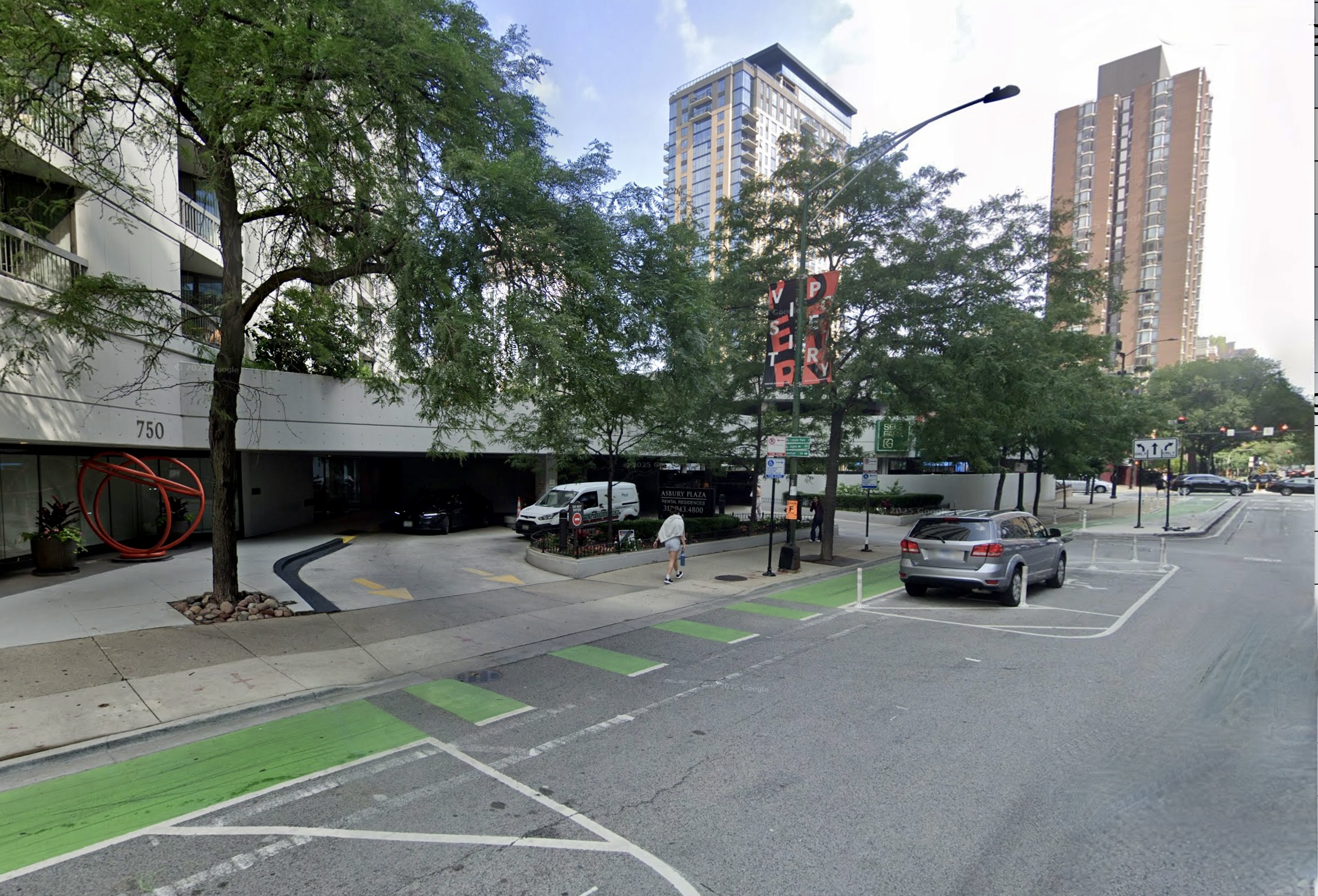
Governor Pat Quinn’s northeastern Illinois task force released its final report [PDF] yesterday, detailing recommendations from its mid-March draft. The task force launched last year, after former Metra CEO Alex Clifford resigned to protest the commuter rail operator's long-running patronage culture.
The task force of transit experts, business and union leaders spends most of the report writing about how regional transit governance developed, starting with CTA's formation in 1947 and the RTA in 1974, and describing how previous transit reforms failed to create a coordinated planning capacity at RTA and instead simply patched a broken funding system.
Their recommendation to create a unified transit agency that would replace the existing RTA is also joined by new recommendations to restore public faith in Chicagoland transit, and to create a system that better supports the economy and residents’ needs.
Transit service, vehicle purchases, and infrastructure upgrades should be planned cohesively in all areas and for all modes, instead of by the RTA and independently by Chicago Transit Authority, Metra, and Pace. (Metra, the report says, hasn’t released a capital plan since 1992 and "does little more than list capital improvements in its annual budget.")
The task force highlights the disparity between job locations and transit access that we’ve reported before and recommends including development around transit as a performance measure. Doing this, the report says, would incentivize municipalities to develop plans and policies that focus development near transit. In other words, if certain towns want more funding for better transit, they’re going to have to ensure that developers build near transit.
In one of the new recommendations, the report suggests eliminating "overly restrictive laws to allow additional public service, like local buses [operated by cities], and private service, like jitneys." Right now, it says, any public bus service must be coordinated by Pace and CTA.
Recognizing that paratransit is growing faster than all other transit modes, and costs more to run, the report adds the new recommendation to "prioritize universal accessibility." "If the transit system is universally accessible," the task force writes, "fewer people will need to rely on more expensive paratransit service."
In designing a new governance structure, we’ve known that the task force wanted to "increase state representation on transit boards" because the state funds part of Chicagoland transit. That's in contrast to Chicago Mayor Rahm Emanuel, who feels the CTA shouldn't be party to a unified agency because, as a mayoral spokesperson said, "Chicagoans demand a public transportation framework that is accountable to riders and taxpayers, which is what we have at the CTA."
The report acknowledges Emanuel’s remarks and notes that World Business Chicago, an economic development non-profit that the mayor chairs, released a report in 2012 that "recommended a strategy to 'reduce fragmentation and improve inter-governmental coordination and cooperation to provide a greater return on public investment'."
The task force stops short of recommending a specific board structure and says that, initially, the unified transit agency’s service be divided into legacy CTA, Pace, and Metra structures. Illinois Senator Daniel Biss’s proposal proposed four divisions separated by mode.
Even though the report does not recommend a specific board structure, it does describe a model integrated transit agency. One new board and 21 members, it suggests, could replace the 47 members on four existing boards. In the "model" example, the Mayor, Governor, Cook County president, and five collar county presidents would equally share appointments, and the Governor would appoint a board chair.
Although the task force doesn't recommend new funding schemes for Chicagoland transit, it believes that better management made possible by a streamlined governance and coordinated planning will introduce new efficiencies. Their recommendation to "seek new revenues" is one the least developed parts of the report.
The report also points out that the CTA serves 38 suburbs and that only 45 percent of its public funding came from sales taxes paid in Chicago, with the other 55 percent coming from suburban sales taxes and the state public transportation fund. Future funding shouldn't be allocated by arbitrary, historic distribution formulas that pits the city against counties and the CTA against Metra and Pace, the report says, but tied to system performance instead.
The task force detailed the long history of appalling ethics violations at the region’s transit boards and recommends solutions to prevent further scandals and nepotism.
Like Biss's proposal, the task force recommends that appointees to the single board must be selected from a pool of candidates selected and vetted by an "independent group... to promote civic acceptability." They suggest the governor’s appointees be confirmed by "the Illinois Senate or other appropriate entity."
Each appointee should have relevant experience, undergo a background check, and reveal potential conflicts of interest before the appointment instead of after, which is currently the case. Finally, no board member should be compensated besides direct expenses like travel. The report noted that board members of New York, Los Angeles, Boston, Washington D.C., Philadelphia, and San Francisco transit agencies – all places with greater transit investments than Chicago – work without pay.
What are the next steps? The report urges the state legislature to first pass new ethics legislation. Next, the report urges that a steering committee be set up within one year to design an integrated transit agency, to be created by the legislature within another year. Afterwards, the new transit agency would develop a regional plan to "achieve world-class transit" based on performance measures outlined by the task force. With the task force's work complete, it's now up to Governor Quinn and the state legislature to respond in the middle of a difficult election year.
Meanwhile, a new funding proposal is on the horizon. Cook County president Toni Preckwinkle and Jacky Grimshaw – Center for Neighborhood Technology vice president – will join Mayor Emanuel on Thursday evening at the University Club to relaunch the "Transit Future" campaign. They will call for a "new, dedicated revenue source for capital investments in transit" for Cook County and Chicago and "unlock millions in federal and other funding."




